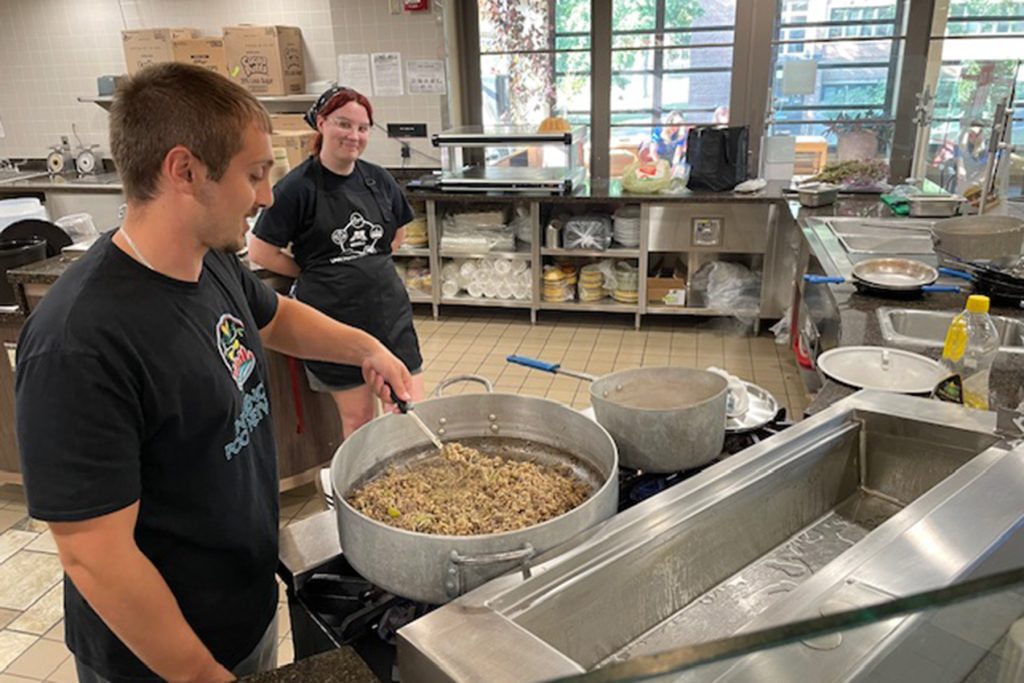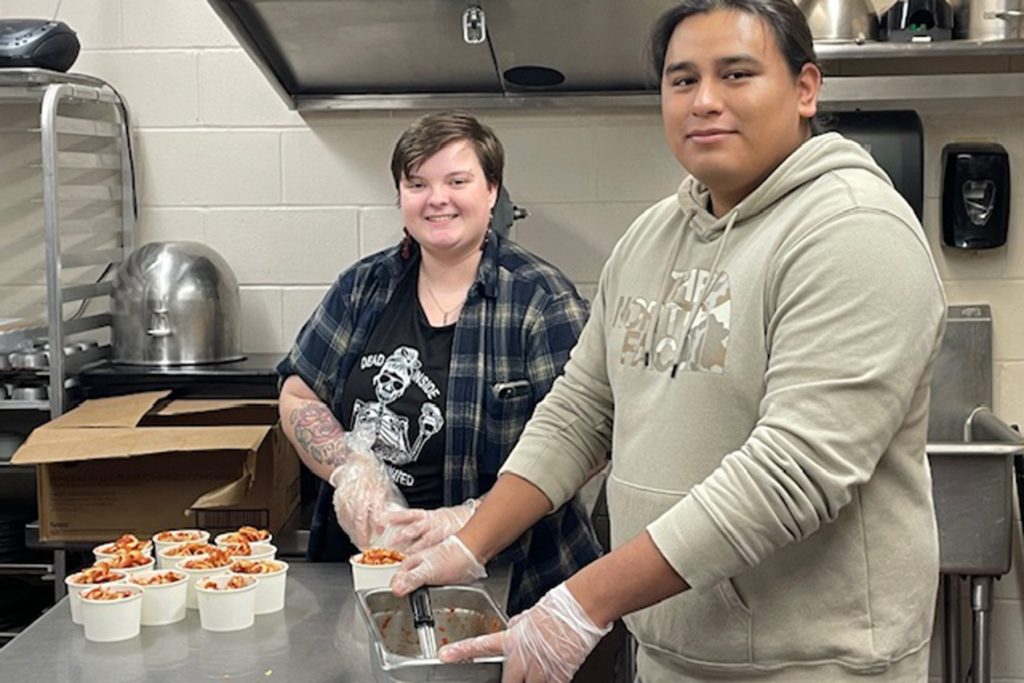At rural university with large Native American enrollment, Blue Cross helps with access to cultural foods
November 20, 2024For college students, nutrition plays a critical role in determining health outcomes, wellbeing and academic performance.
According to University of Minnesota School of Public Health, one in every four college students in Minnesota is food insecure, meaning they don’t have enough food to meet their essential needs or maintain a healthy lifestyle. Rates of food insecurity are even higher for first generation college students and students of color, especially Black, Indigenous, Latine, and multiracial students.

A new initiative at the University of Minnesota Morris (UMN Morris) is working to eliminate food insecurity on campus and empower students as leaders. The UMN Morris Food Justice Initiative helps to increase student’s access to healthy and culturally relevant foods, along with providing education on food preparation and why inequities exist in our current food systems.
“Most students have some financial constraints that impact the sort of food they have accessible to them,” said Clement Loo, UMN Morris Assistant Professor of Environmental Studies and Student Success Coordinator in Equity, Diversity, and Intercultural Programs. “Our campus is also rural, further away from larger cities, lacking great transportation options, and historically culturally homogenous. So, there is a lack of variety in town when it comes to affordable, culturally relevant food.”
With support from the Center for Racial and Health Equity at Blue Cross and Blue Shield of Minnesota, the Food Justice Initiative at UMN Morris is making healthy, culturally relevant foods accessible to students. The initiative is also supporting students in becoming food justice advocates and systems change leaders.
Healing through culturally relevant foods at UMN Morris
UMN Morris was founded on the site of a Native American boarding school, known as the Morris Industrial School for Indians. In 1960, the school was transformed into a public university and what is now the UMN Morris campus. Since 1960, the University has offered free tuition to Native American students. Today, over 300 Native American students attend UMN Morris and make up more than 30% of the student body. This stands in stark contrast to other colleges and universities in Minnesota and nationwide, where Native students comprise just 1% to 2% of students at four-year colleges.
 Supporting Native students in healing from the generational trauma of Indian Boarding Schools and other forced assimilation policies is imperative for them to be able to thrive at college. The UMN Morris Food Justice Initiative goes beyond the goal of food security and emphasizes the importance of culture and identity when it comes to food and nourishment.
Supporting Native students in healing from the generational trauma of Indian Boarding Schools and other forced assimilation policies is imperative for them to be able to thrive at college. The UMN Morris Food Justice Initiative goes beyond the goal of food security and emphasizes the importance of culture and identity when it comes to food and nourishment.
“It is important for the University to provide constant and easy ways for students to connect to culturally relevant foods, so the onus is not entirely on the student,” said Liz Thomson, Interim Associate Vice Chancellor for Diversity, Equity, and Inclusion and Director, Office of Equity, Diversity, and Intercultural Programs at UMN Morris. “Students shouldn't have to choose between attending UMN Morris or their culture.”
Through the UMN Morris Food Justice Initiative, new food shelves and food recovery programs have been created on campus. Alongside donated and rescued foods, student food shelves are stocked with traditional Indigenous and culturally relevant foods.
As a result, food shelves on campus are being used at higher rates, and rather than being stigmatized as a source of shame, culturally relevant foods and community organizing have helped to transform food shelves into a positive experience for students.

